Pulsara Around the World - 2025 Recap and January 2026
December Recap After an incredibly busy events year with 102 conferences, trade shows, and sponsorships, December was on the slower side for us, with...
5 min read
 Team Pulsara
:
Aug 24, 2020
Team Pulsara
:
Aug 24, 2020
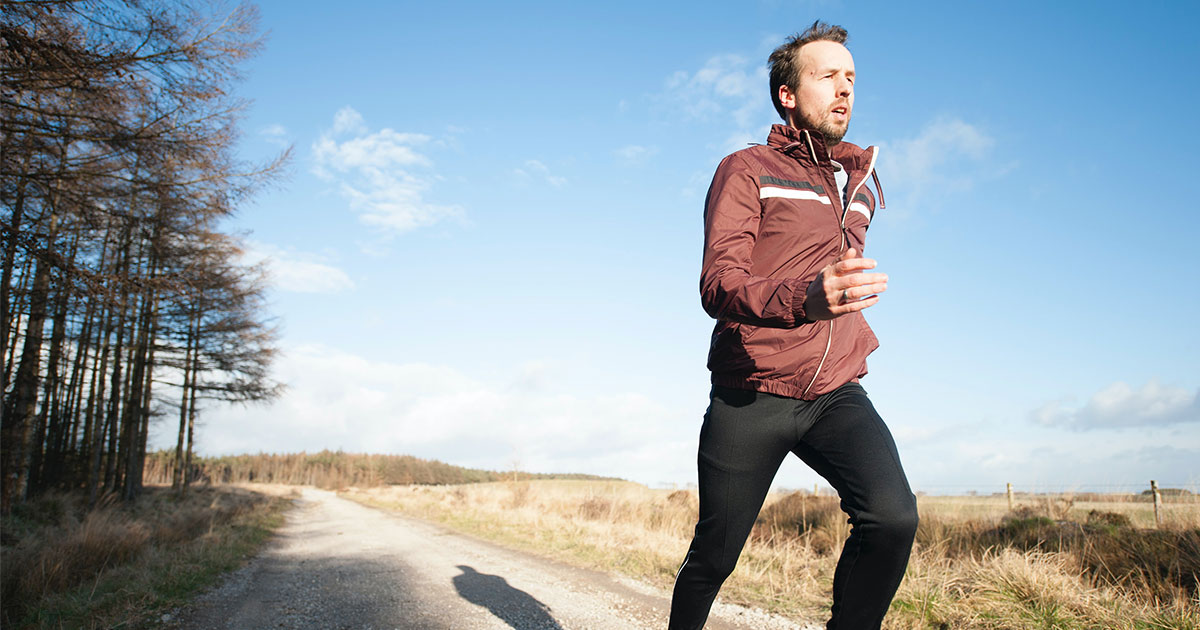
EDITOR'S NOTE: This article originally appeared on EMS1.com. Special thanks to our guest author, Sarah Salams of EMS1 BrandFocus.
__
At the beginning of each year, many people make resolutions to either accomplish a personal goal or improve their life in one way or another. These resolutions, both large and small, include goals like eating healthier, exercising regularly, and learning a new skill.
Staying focused on a resolution year-round is difficult even under the most normal circumstances. This year, the COVID-19 pandemic has upended first responders’ lives as they continue to serve and take care of patients.
It’s easy to place your own needs on the back burner while taking care of others who are suffering and need help. However, it is important to recognize that your health – both physically and mentally – is more important than ever right now.
To help keep your health and well-being a top priority during such a tumultuous time, here are 10 things every EMS provider needs to know about wellness and fitness.
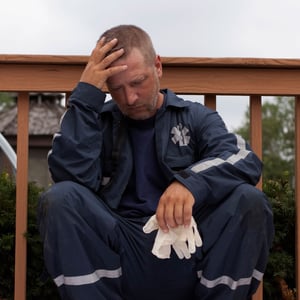 It’s important to remember that you can’t take care of others if you don’t take care of yourself. This means that if you’re not feeling well, now is not the time to act tough and ignore potential symptoms. Call your doctor if you’re feeling unwell. Period.
It’s important to remember that you can’t take care of others if you don’t take care of yourself. This means that if you’re not feeling well, now is not the time to act tough and ignore potential symptoms. Call your doctor if you’re feeling unwell. Period.
And while physical health should always be a top concern, EMS providers’ mental health should never be ignored. Red-flag behaviors can include increased feelings of anger, loss of appetite, confused thinking, extreme highs and lows, or feelings of worry or panic. These signs need to be acknowledged, addressed, and managed immediately.
During times of increased stress, it’s critical to check in with yourself and your colleagues – and remember that a peer support person or member of an employee assistance program is just a phone call away.
First responders are finding it difficult to relieve their stress in the same ways they did before the COVID-19 pandemic struck. These self-care measures are important, and it’s imperative for first responders to find new ways of reducing and managing their stress.
For example, exercising has direct stress-busting benefits, like boosting your endorphins, improving your mood and relieving stress or worries.
If sweating it out isn’t your way of decompressing, then focus on other hobbies or skills. These can include going fishing, painting, knitting, journaling, or meditating.
 Finding time to fuel your body with healthy food is a chore, especially when you’re running back-to-back calls, shift after shift.
Finding time to fuel your body with healthy food is a chore, especially when you’re running back-to-back calls, shift after shift.
As you continue to respond to and provide care during the pandemic, it’s crucial that your immune system stays strong. In the event you do contract COVID-19, this can help sustain your body as it fights off the virus.
Here are a few ways to boost your immune system (and target your physical and mental health needs):
Achieving your wellness, fitness, and health goals starts with clean eating. But, in order to change your diet, you must first admit that you have a food problem.
With a little planning, these five healthy, on-the-go meals fit the bill for any EMS provider. Get rid of any nutrient-free, high-sugar products from your diet right now. When you’re stressed or fatigued, these types of foods may seem like the answer, but they’re not.
 Many first responders are working longer hours and extra shifts during the pandemic, and these longer hours can cause exhaustion and fatigue.
Many first responders are working longer hours and extra shifts during the pandemic, and these longer hours can cause exhaustion and fatigue.
A 2015 study found that EMTs and paramedics who work long shifts are 60% more likely to suffer injury and illness than those who work eight- to 12-hour shifts. Furthermore, inconsistent sleep patterns can lead to mental health issues.
As an EMS provider, you’re likely always burning the candle at both ends. This makes it difficult to protect yourself from fatigue.
That’s why it’s important – not just now, but always – for EMS leaders to tackle this issue head-on and begin implementing ways to ensure that every EMS provider is properly rested. Not sure where to begin? Start with a fatigue risk management program.
Also, on a personal level, try taking a 20- to 30-minute nap or rest break during your scheduled shift. Taking a short nap or just resting your eyes in a quiet, dark room can be helpful.
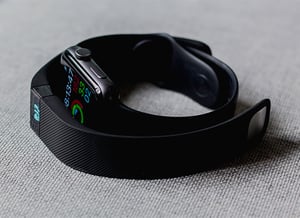 According to research from Ohio State University’s Wexner Medical Center, sitting is the new smoking. Use a device that monitors your activity, such as a Fitbit, Apple Watch, or pedometer app on your smartphone. These will notify you to get up and move if you’ve been sitting or staying in one spot for too long.
According to research from Ohio State University’s Wexner Medical Center, sitting is the new smoking. Use a device that monitors your activity, such as a Fitbit, Apple Watch, or pedometer app on your smartphone. These will notify you to get up and move if you’ve been sitting or staying in one spot for too long.
Need an exercise idea? Try this fat burning workout three times a week – even the busiest EMS provider can do this.
If you’re missing lifting heavy weights at the gym, try getting outside and going for a 30-minute run. Not only will the fresh air do you some good, but it will allow you to decompress and alleviate your stress after a long, difficult day.
Don’t think of exercising as just another thing to check off on your to-do list. Find a physical activity you enjoy – whether that’s a pick-up basketball game or a brisk walk around the park – and make it part of your daily routine. Exercising often and regularly will provide you with at least one activity a day that’s directly associated with easing your stress levels.
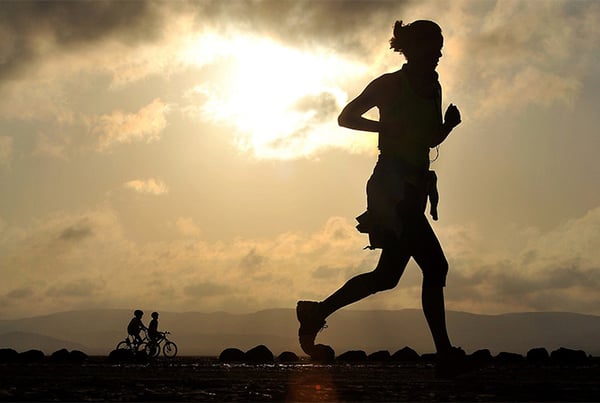
There are two types of people: those who stretch before and after a workout, and those who don’t.
Stretching shouldn’t be overlooked – not only in a workout, but before, during and after your shift. Stretching not only helps you feel and move better, but it helps reduce your risk of injury. Regularly doing these six stretches will help you perform your job better – and keep you and your patients safer.
Do you ever get reminded by your Apple Watch to relax and focus on your breathing?
It might sound and feel corny, but taking deep, conscious breaths allows you to release any negative energy that’s being stored in your body. Deep breathing, according to Dr. James Hoyt, a Colorado-based pulmonologist, has been shown to “slow the heartbeat, lower or stabilize blood pressure and lower stress.”
To properly relax and reduce your stress, find a comfortable place to sit or lie down. Then, just breathe slowly and deeply through your nose, and exhale fully. Take a few slow, deep breaths for a couple of minutes throughout your day, especially when you’re feeling stressed.
About the Author
Sarah Calams previously served as associate editor of EMS1 and Lexipol. In addition to her regular editing duties, Sarah delved deep into the people and issues that make up the EMS industry to bring insights and lessons learned to EMS providers everywhere. Sarah graduated with a bachelor's degree in news/editorial journalism at the University of North Texas in Denton, Texas.
To learn about how medics can prepare for the complex situations they encounter daily, check out The 5 Most Important Factors of Emergency Preparedness.

December Recap After an incredibly busy events year with 102 conferences, trade shows, and sponsorships, December was on the slower side for us, with...
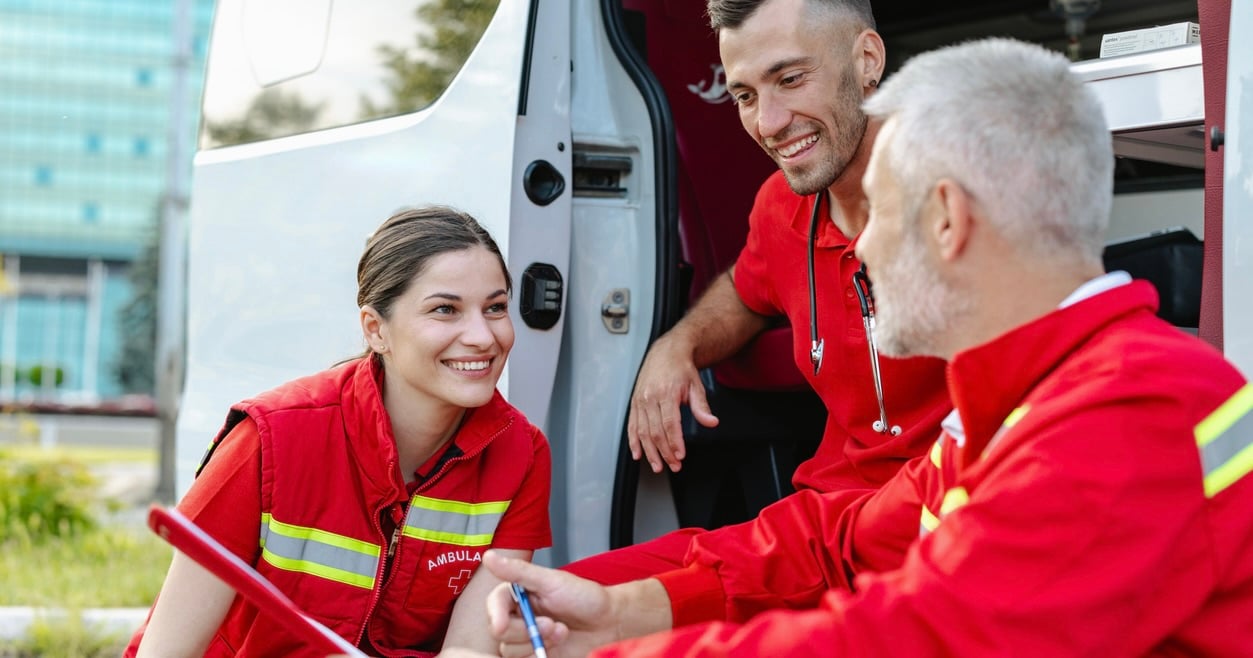
Editor's Note: In July 2025, EMS1 and Fitch & Associates released their annual EMS trend survey, What Paramedics Want, proudly sponsored by Pulsara....
![[PRESS RELEASE] Published Research Finds Up to 31% Faster STEMI Treatment Times in Rural Hospital Setting with Pulsara](https://www.pulsara.com/hubfs/_1_website-page-blog-assets/pulsara-hosp-teams-assign-cardio-stemi-rn-1200x701.jpg)
Published research shows how using Pulsara, alongside standardized field activation and a focus on stakeholder relationships, improves STEMI care and...